Academic Medical Centers (AMC) provide critical services often not available elsewhere. In addition to delivering quality patient care, they engage in medical research, uncover clinical breakthroughs, and train future providers.
AMCs’ commitment to providing quality education requires them to maintain harmony between a split academic-clinical focus, onerous administrative tasks, and constant financial.
Partnering with a healthcare management company, one who is willing to work with your current provider model and honor your academic mission, is one way to accomplish that goal.
Addressing Growing Administrative Burdens
Administrative burdens plague hospitals and physicians alike. Frankly, it’s easy to understand why doctors complain there is too much paperwork and too many government and payer regulations.
Piles of Paperwork
The 2021 Medscape Physician Compensation Report surveyed nearly 18,000 physicians across 29 specialties and found that out of the 50 or so hours worked per week, 15.6 (roughly 30 percent) were spent on administration and paperwork.
Not only that, but according to the American College of Physicians (ACP), the growing number of administrative tasks imposed on physicians also adds unnecessary costs to the U.S. healthcare system.
“Excessive administrative tasks divert time and focus from more clinically important activities of physicians and their staffs, such as providing actual care to patients and improving quality and may prevent patients from receiving timely and appropriate care or treatment,” ACP says.
These tasks don’t just cost the hospital in productivity, but also increase physician burnout.
Medscape’s 2021 Physician Burnout and Suicide Report, “Death by 1000 Cuts,” states that the top driver of burnout is “too many administrative tasks.”
Staffing Concerns
When it comes to hospital administrative resources, growth staffing is often a major concern. Recruitment and credentialing tasks are numerous, yet when you need people the most, you rarely have the extra resources to find them.
A management partnership, particularly one with nationwide reach, can add value through recruiting and onboarding new clinicians to keep your hospital running smoothly.
Leadership Development
Strong clinical leaders are vital to keep a practice running smoothly, but when training new doctors is a major part of your mission, developing those leaders may get pushed to the side.
Outside resources from management partnerships often have programs that include dedicated clinical committees and senior clinical leaders to strengthen the talent you already have and help them grow in leadership.
A management services partner can strengthen your practice and existing programs and help carry the administrative load and mitigate or eliminate their adverse effects on physicians, hospitals, and the healthcare system at large.
Financial Hurdles
Not only do teaching hospitals face administrative challenges, but they must also confront higher financial hurdles than their non-academic counterparts for several reasons: the shift from fee-for-service to value-based care, reduced government research funding, and treating more complex patients.
Shift to Value-based Care
The shift from fee-based to value-based payment models could strain academic health systems.
Value-based care and payment models incentivize participants to reduce the overall cost of care while maintaining or improving the quality of care. That is proving to be a challenge for teaching hospitals.
As a case in point, RevCycleIntelligence reports that AMCs received more overall value-based penalties between 2016 and 2018, with 40 percent of medical centers getting seven or more of the nine possible penalties. For 2018 specifically, just 1.7 percent of AMCs received no value-based penalty.
Shifting a hospital’s approach to value-based care is complex and requires expert management and collaboration, yet AMCs will need to make this shift in order to succeed under the new model.
Reduced Government Research Funding
AMCs face enormous challenges from a prospective decline in government funding for research and education, forcing them to “de-emphasize or forsake their core mission in an effort to survive,” Science Direct says. To optimize their current funding, teaching hospitals need to find ways to reduce costs that won’t negatively impact their overall mission.
More Complex Care
AMCs often provide care to more medically complex patients than other hospitals, which can make it harder to perform well on cost and quality metrics.
More complex care requires extra spending on medicines, medical devices, and other supplies as a share of total revenues. Medicare case-mix indexes also tend to be higher for AMCs than non-AMCs—roughly 2 versus 1.6 in 2017—suggesting a greater number of high-cost cases.
Billing and Coding
A large part of physician paperwork is closely linked to billing and coding. With its direct ties to reimbursement and revenue, this particular administrative task needs skilled guidance and standardization.
Academic medical centers can maximize their revenue by leveraging a partner’s experience and expertise when it comes to coding and collections.
Conclusion
Regarding the need to stay true to their core mission while finding solutions to financial problems, a Cedars Sinai article addressing financial hurdles in teaching hospitals says:
“Major academic centers must continue to embrace their responsibility to drive forward operational and research efforts to improve the quality of care, reduce unnecessary expenditures, and train future generations of clinicians to thrive in a value-based payment environment. Academic centers must become as dedicated to advancing operational and clinical efficiency as they have been to advancing the science of medicine.”
Academic medical centers are experts in research, education, and quality care. Partnered with a best-in-class practice management team to address operational and clinical solutions, they can excel in both areas.
Contact us today if you are interested in partnering with SCP Health to relieve the unique financial and administrative burdens your teaching hospital carries. Leaning on deep experience in operational improvement and provider management, SCP will evaluate your exact needs and create an aligned, strategic action plan.



